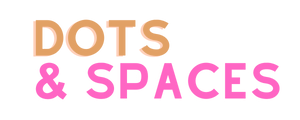This week the events in Paris have shocked and horrified, citizens have gathered together to pay homage and stand in solidarity against an attack on freedom of speech and democracy.
I have a strong belief that education is one of the most important pillars supporting a successful democracy, that learning provides equality and understanding. The freedom to speak freely is a right that we have to use or else we will lose it. The blunt tool used to silence only served to make louder.
Four new MOOCs from Futurelearn are launching in the next few weeks and I've been guided to them by Class Central which is fast becoming the central aggregation point for free online learning, bringing together courses from Edx, Coursera, Futurelearn and other providers. This is an excellent site that offers up a huge range of courses and also provides reflection on the success and strategy of online learning.
Cory Doctorow (yes, that one) is your guide for An Introduction to Cyber Security, and along with Arosha Bandara presents what might be a dry subject in an open and useful way. The humour associated with Doctorow's work helps to move things along as this course promises to introduce you to the ethical issues and concerns that the sector deals in, as well as some practical advice to make life safer online.
I have to say that I signed up to Explore Filmmaking almost right away, this course from the National Film and Television School isn't just for budding Spielbergs and Scorsese's, it establishes principles which everyone involved in the production of moving image will find useful. The NFTS is able to lean on its incredible stable of BAFTA winning talent, including Mike Figgis, director of Leaving Las Vegas, Timecode and Internal Affairs. Figgis wrote Digital Filmmaking which still stands as one of the most useful and insightful pieces of writing about low budget cinema anyone has written. This is a treat and I can't wait for it to start.
Finally there are two MOOCs which might shed light on corporate responsibility and developing new technologies that reduce the impact on this poor old planet of our. Sustainability for Professionals from the University of Bath will provide important theories and understanding for businesses looking at the impact of their work. Sustainable means safeguarding our future, so it's important that the controversies of energy politics are explored in Shale Gas and Fracking: The Politics and Science from The University of Nottingham. Sarah O'Hara and Mathew Humprey are your guides through this four week course, where the comments and discussions are sure to be lively and challenging.
Again, it's good to see MOOCs at the forefront of debate and discussion, helping to challenge our understanding of the world and as a forum for free speech and thinking.
